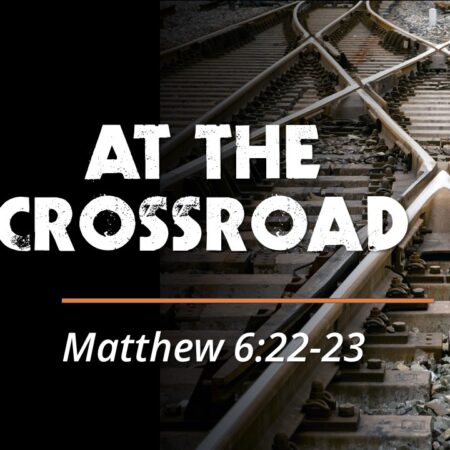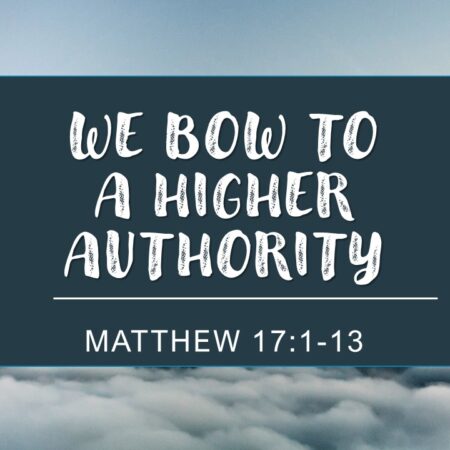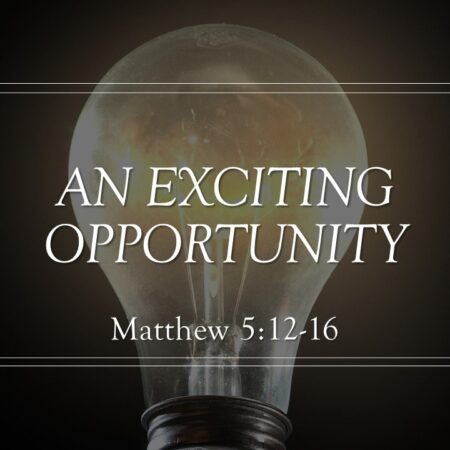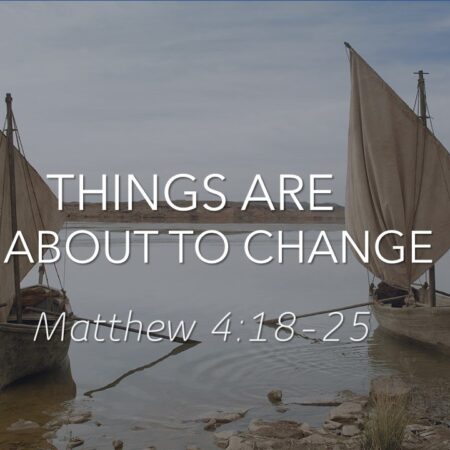Ravi Zacharias
“The Camera had won the battle OF SEEING AND BELIEVING. The world, and America in particular, was foundationally transformed. The zeal of young, combined with the material means that their parents had fought to give them and the invasiveness of the medium of television, made for a powerful overthrow of the reigning worldview.
The battle was carried into the universities, whose own academic experts were flaying America, and the intelligentsia hit hard at political demagoguery, as they called it.
…And all this was reflected in the arts as rock stars changed the mathematical rules of music and discord became entertainment. Noise became deafened to reason.
…At the time, most people failed to understand the power of the media to change their views and reshape their thinking. Instead of viewing the world THROUGH the medium of television, they allowed the medium TO DEFINE THE WORLD FOR THEM.”
In the same book “WHY JESUS” Ravi goes on to explain:
“There is a war raging. It is the battle for thought and belief through a weapon of mass deconstruction. In that battle, it is not firepower we need to fear as much as it is electronic power. From the conscious to the subconscious we are in its grip. From wars in different lands to battles for moral acceptability, the television set has won the day. I stress this because I believe that almost none of the NEW SPIRITUALITIES would be so pervasive if it were not for the genius and built-in distortion of television. It reinforces what WE WANT TO BELIEVE, and if what WE WANT TO BELIEVE is WHAT WE ARE TOLD TO BELIEVE THROUGH THE MEDIUM, no amount of logic or argument can shake that conviction. Whichever way you want to look at it, television – and now viral media – is the SHAPER OF EVERYTHING WE THINK AND BELIEVE.”
The word translated “healthy” is “HAPLOUS” which means “motivated by singleness of purpose so as to be open and above board, single, without guile, sincere, straightforward.”
Tom Landry, the legendary coach of the Dallas Cowboys and a committed follower of Jesus, said: “The job of a coach is to make men do what they don’t want to do, in order to be what they’ve always wanted to be.”
Blaise Pascal, the French mathematician and philosopher, wrote:
“There are only three kinds of persons; those who serve God having found him; others who are occupied in seeking him, not having found him; while the remainder live without seeking him and without having found him. The first are reasonable and happy; the last are foolish and unhappy; those between are unhappy and reasonable.”
The Gospel of Matthew
Robert Maginnis in his book “Collision Course – The fight to reclaim our Moral Compass before it’s too Late” writes:
“Even though the pain of the cultural revolution is especially acute at present, the truth is it started decades ago when the so-called progressives began planning the gradual destruction of America. Their achievements were gradual such as removing God from the public square, making our public schools into leftist brainwashing machines that teach children to hate God, country and their parents.”
HARVARD UNIVERSITY
“Let every student be plainly instructed and consider well that the main end of his life and studies is to know God and Jesus, which is eternal life and therefore to lay Christ in the bottom as the only foundation of all sound knowledge and learning.
Everyone shall so exercise himself in reading the Scriptures twice a day that he shall be ready to give such an account of his proficiency therein.” Harvard student directives, 1643
YALE UNIVERSITY
“In all, have an eye to the great end of all your studies, which is to obtain the clearest conception of Divine things and to lead you to a saving knowledge of God in His Son, Jesus Christ.
Thomas Clapp, Yale President 1740
Yale’s Requirements:
“All scholars are to live a religious and blameless life according to the rules of God’s word, diligently reading the Holy Scriptures, and constantly attending all the duties of religion.
Yale student regulations, 1745
PRINCETON UNIVERSITY
“Every student shall attend worship in the college hall morning and evening and shall attend public service on the Sabbath. There shall be assigned to each class certain exercises for the religious instruction. And no student belonging to any class shall neglect them.
He is the best friend to American liberty who is the most sincere and active in promoting true and undefiled religion and who sets himself with the greatest firmness to bear down on profanity and immorality of every kind. Whosoever is an avowed enemy of God, I hesitate not to call him an enemy of this country.”
John Witherspoon, President of Princeton University
What one generation tolerates; the next generation will embrace.” John Wesley
The following letter from college student Marcy Musgrave in the editorial section of the Dallas Morning News on Sunday, May 2, 1999.
“Generation NEXT has some Questions. I am a member of the upcoming generation – the one after Generation X that has yet to be given a name. So far, it appears that most people are rallying behind the idea of calling us Generation Next. I believe I know why. The older generations are hoping we will mindlessly assume our place as the “next” in line. That way, they won’t have to explain why my generation has had to experience so much pain and heartache. “What heartache?” you say. “Don’t you know you have grown up in a time of great prosperity?” Yea, we know that.
Believe me, it has been drilled into our heads since birth. Unfortunately, the pain and hurt I speak of can’t be reconciled with money. You have tried for years to buy us happiness, but it is only temporary. Money isn’t the answer, and it is time for people to begin admitting their guilt for failing my generation. I will admit that I wasn’t planning to write this. I was going to tuck it away in some corner of my mind and fall victim to your whole “next” mentality.
But after the massacre in Littleton, CO, I realize that as a member of this generation that kills without remorse, I had a duty to challenge all of my elders to explain why they have allowed things to become so bad. Let me tell you this; These questions don’t represent only me but a whole generation that is struggling to grow up and make sense of this world. We all have questions; we all want explanations. People may label us Generation NEXT, but we are more appropriately Generation “WHY?”
“Why did most of you lie when you made the vow of ‘til death do us part’?
Why do you fool yourselves into believing that divorce really is better for the kids in the long run? Why do so many of you divorced parents spend more time with your new boyfriend or girlfriend than with your own children? Why did you ever fall victim to the notion that kids are just as well off being raised by a complete stranger at a daycare center than by their own mother or father? Why do you look down on parents who decide to quit work and stay home to raise their children? Why does the television do the most talking at family meals? Why is work more important than your own family? Why is money regarded as more important than relationships?
Why is ‘quality time’ generally no longer than a five-to-10 minute conversation each day? Why do you try to make up for the lack of time you spend with us by giving us more and more material objects that we really don’t need? Why does your work (in the form of a cell Phone, laptop computer, etc.), always come with us on vacations? Why have you neglected to teach us values and morals? Why haven’t you lived moral lives that we could model our own after? Why isn’t religion one of the most important words in our household? Why do you play God when it comes to abortion? Why don’t you have enough faith in us to teach us abstinence rather than safe sex? Why do you allow us to watch violent movies but expect us to maintain some type of childlike innocence? Why do you allow us to spend unlimited amounts of time on the Internet, but still are shocked about our knowledge of how to build bombs? Why are you so afraid to tell us ‘NO’ sometimes? Why is it so hard for you to realize that school shootings, and other violent juvenile behavior, result from a lack of your attention more than anything else? Call us GENERATION NEXT if you want to, but I think you will be surprised at how we will fail to fit into your neat little category. These questions should, and will, be asked of the generations that have failed us.” Marcy Musgrave, a junior at Texas A&M University
“Give me four years to teach the children and the seed I have sown will never be uprooted.” Vladimir Lenin
Ravi Zacharias in his book “Jesus among Secular God’s” (2017) makes this observation regarding Europe:
“I will go so far as to say that the West is on the verge of collapse at the hands of its own secular intellectuals. It is only a matter of time. The Christian faith brings with it convictions by which to stand and build a moral framework. The secular thinker, with his implicitly amoral assumptions, imagines that knowledge without a moral base has enough sustaining power. It simply doesn’t.
Watch Europe cower under the heel of Islamists who have not forgotten that they were stopped from overtaking Europe and beaten back by Charles Martel thirteen centuries ago. Now, with patience and the clever control of demographics and a gullible media, they stand by, ready to one day take over the structures and edifices built by a different ethic and a different belief system. It is only a matter of time, and they are in no hurry. Thirteen centuries ago, Europe was able to stop the theocratic Islamic tidal wave BECAUSE IT HAD A FAITH TO DEFEND. The value-less culture of today will not be able to withstand the attack.”
The same year (2017) Douglas Murray published the book titled: “The Strange Death of Europe”
He starts the Introduction with these words: “Europe is committing suicide. Or at least its leaders have decided to commit suicide. Whether the European people choose to go along with this is, naturally, another matter.”
The Latin for radical is ‘RADIX’ which means “to cut to the root”
Dr. Martin Luther King Jr. warned: “If the church does not recapture its prophetic zeal, it will become an irrelevant social club without moral or spiritual authority.”
February 6, 2009, the National Religious Broadcasters adopted what they called:
“A Declaration of Unity in the Gospel”
“We fully accept our charge to faithfully obey the command of Christ to preach the Gospel, even if human governments and institutions attempt to oppose, constrain, or prohibit.”
John Chrysostom, Archbishop of Constantinople, wrote:
“WE must not mind insulting men, if by respecting them we offend God.”
J. Vernon McGee once made this statements about the prophet Daniel who suffered persecution for his faith:
“The reason the lions didn’t eat him is because he was three-fourths backbone and the rest gristle!”
Johann Wolfgang von Goethe observed:
“None are more hopelessly enslaved than those who falsely believe they are free.”
In 1931, Philosopher Aldous Huxley wrote the novel ‘BRAVE NEW WORLD”
He wrote this book before world war II.
“There will be, in the next generation or so, a pharmacological method of making people love their servitude, and producing dictatorship without tears, so to speak, producing a kind of painless concentration camp for entire societies, so that people will in fact have their liberties taken away from them, but will rather enjoy it, because they will be DISTRACTED FROM ANY DESIRE TO REBEL by propaganda or brainwashing, or brainwashing enhanced by pharmacological methods. And this seems to be the final revolution.” Aldous Huxley
Yuri Alexandrovich Bezmenov, a former KGB agent who defected to Canada in 1970.
Here’s how Bezmenov described the state of a “demoralized” person:
“As I mentioned before, exposure to true information does not matter anymore,” said Bezmenov. “A person who was demoralized is unable to assess true information. The facts tell nothing to him. Even if I shower him with information, with authentic proof, with documents, with pictures; even if I take him by force to the Soviet Union and show him [a] concentration camp, he will refuse to believe it, until he [receives] a kick in his fan-bottom. When a military boot crashes his balls then he will understand. But not before that. That’s the [tragedy] of the situation of demoralization.”
It’s hard not to see in that the state of many modern Americans. We have become a society of polarized tribes, with some people flat out rejecting facts in favor of narratives and opinions.
Once demoralization is completed, the second stage of ideological brainwashing is “destabilization”. During this two-to-five-year period, asserted Bezmenov, what matters is the targeting of essential structural elements of a nation: economy, foreign relations, and defense systems. Basically, the subverter would look to destabilize every one of those areas in the United States, considerably weakening it.
The third stage would be “crisis”. It would take only up to six weeks to send a country into crisis, explained Bezmenov. The crisis would bring “a violent change of power, structure, and economy” and will be followed by the last stage, “normalization.” That’s when your country is basically taken over, living under a new ideology and reality.
This will happen to America unless it gets rid of people who will bring it to a crisis, warned Bezmenov. What’s more “if people will fail to grasp the impending danger of that development, nothing ever can help [the] United States,” adding, “You may kiss goodbye to your freedom.”
JESUS CAME TO PROCLAIM THE GOSPEL OF THE KINGDOM.
Chuck Swindoll in his commentary on this text writes:
“For many years, faulty information had been taught by the religious aristocracy. With unquestioned authority, these religious leaders twisted the meaning of Holy Scripture, offered interpretations that were simply wrong, and demanded applications that were frankly impossible. Not content to let God’s Word speak for itself, they added to the commandments of God and required that everyone obey their additions without hesitation.
When Jesus sat down and delivered His illustrious Sermon on the Mount, jaws must have dropped as His audience heard an entirely different interpretation, delivered in an entirely different mode of communication.”
Dr. Michael Heiser in his book “Supernatural” writes:
“Though Eden was lost, God intends that it be restored. Ultimately, his rule – his kingdom – will return in its full scope when Jesus comes back and God creates a new heaven and earth (one that, in Revelation 21 and 22 looks a lot like Eden.)
In the meantime, we can spread the truth of God and the gospel of Jesus everywhere. We can also represent God to everyone we meet and in every place. We are God’s agents to restore Eden in the here and now, looking forward to the day when Jesus brings that plan to a climax.”
John Stott says it this way in his commentary on Matthew:
“Christian righteousness is greater than pharisaic righteousness because it is deeper, being a righteousness of the heart.
The righteousness which is pleasing to him is an inward righteousness of MIND AND MOTIVE.”
Today we gather at home and are encouraged by the Word of God. Ephesians 6:10-20 Philippians 4:19-20
Then, Jesus makes these remarkable statements:
• You are the salt of the earth, but if salt has lost its taste, how shall its saltiness be restored? It is no longer good for anything except to be thrown out and trampled under people’s feet.
• You are the light of the world. A city set on a hill cannot be hidden. Nor do people light a lamp and put it under a basket but on a stand, and it gives light to all in the house.
• In the same way, LET YOUR LIGHT SHINE BEFORE OTHERS, so that they may see your good works and give glory to your Father who is in heaven.
Remember, Jesus spoke these words to a crowd that has lost hope. It is easy to lose hope when things don’t look good and uncertainty and fear is dominating our very lives.
Mark Sayers in his book “The Disappearing Church” has a chapter titled:
Creative Minorities: Going Deep
“The huge tree wins the race by doing something counterintuitive. While the others fight for space, air, and light, it goes underground. While the others head upwards pushing through the surface, it goes deep. While the others pursue, visibility at the expense of stability, the tree remains underground, hidden, building powerful roots. The deep underground foundation grown by the tree ensure that it is connected to deep and unseen sources of water, nutrients, and life. Once these are secured, growth can then happen.
The tree is willing to lose the initial battles in order to win the war.”
“In our culture, which corrodes and seduces us, which erodes commitments, faith, and covenant, we need to be like the tree. The response to a culture built on superficiality, which reduces the world to a shallow secularity, is depth. We need sources of life and sustenance not found in the adulation or respect of the public. In our culture which rips at roots, which tears at foundations, we need depth, we need roots, and we need foundations.”
Richard Foster once said:
“The desperate need today is not for a greater number of intelligent people, or gifted people, but for deep people.”
This account shows everyone is living the same life on Instagram by Cara Curtis —
“When scrolling through your Instagram feed, do you ever feel like you’re getting déjà vu? This is probably because people seem to be living the same life on Instagram.
Whether it’s a perfectly shot piece of avocado toast alongside an artistic looking latte or a breathtaking image of someone jumping from a waterfall, it’s been done before. A million times.
Long before over-sharing online was a normal thing to do, humans have always been attracted to tourist destinations to capture the perfect photograph.
I think we’re all guilty of it to some extent, but now, instead of taking home a gift shop souvenir and relaying your trip to your close friends, people post every detail of their lives online to hundreds of followers who they may not necessarily even know.
Because of this urge to document our lives in real time, originality is becoming a thing of the past and a new-age of copycatting is creeping up on us.”
Before we go to our text, let me read from a chapter titled “the Instagram Life”
“Every society has a way of transmitting its values to the young. Some societies do it through religious festivals or military parades. One of the ways we do it is through a secular sermon called the commencement address……Many young people are graduating into limbo. Floating and plagued by uncertainty, they want to know what specifically they should do with their lives. So, we hand them
• THE GREAT EMPTY BOX OF FREEDOM.
The purpose of life is to be free. Freedom leads to happiness! We’re not going to impose anything on you or tell you what to do. We give you your liberated self to explore. Enjoy your freedom!
The students in the audience put down the empty box because they are drowning in freedom. What they’re looking for is DIRECTION. What is freedom for? How do I know which path is my path?
So we hand them another big box of nothing –
• THE BIG BOX OF POSSIBILITY!
Your future is limitless! You can do anything you set your mind to! The journey is the destination! Take risks! Be audacious! Dream big! But this mantra doesn’t help, either. If you don’t know what your life is for, how does it help to be told that your future is limitless? That just ups the pressure. So they put down that empty box. They are looking for a SOURCE OF WISDOM. Where can I find the answers to my big questions.
So, we hand them
• THE EMPTY BOX OF AUTHENTICITY.
Look inside yourself! Find your true inner passion. You are amazing! Awaken the giant within! Live according to your own true way! You do you!
This is useless too. The “you” we tell them to consult for life’s answers is the very thing that hasn’t yet formed. So they put down that empty box and ask, “What can I devote myself to? What cause will inspire me and give meaning and direction to my life?”
At this point we hand them
• THE EMPTIEST BOX OF ALL – THE BOX OF AUTONOMY.
You are on your own, we tell them. It’s up to you to define your own values, No one else can tell you what’s right or wrong for you. Your truth is to be found in your own way through your own story that you tell about yourself. Do what you love!
You will notice that our answers take all the difficulties of living in your twenties and make them worse. The graduates are in limbo, and we give them uncertainty. They want to know why they should do this as opposed to that. And we have nothing to say except. Figure it out yourself based on no criteria outside yourself. They are floundering in a formless desert. Not only over their heads.
David Brooks “The Second Mountain – The quest for a Moral Life”
The author summarizes the big SIM TO NOWHERE with these words:
“The average American has seven jobs over the course of their twenties. A third of recent college graduates are unemployed, underemployed, or making less then $ 30,000 a year at any given moment. Half feel they have no plan for their life.
These are peak years for alcoholism and drug addiction. People in this life stage move every three years. 40% move back in with their parents at least once. They are much less likely to attend religious services or join a political party. People in their odyssey years tend to be dementedly optimistic about the long-term future. 96% of 18-24-olds agree with the statement “I AM VERY SURE THAT SOMEDAY I WILL GET TO WHERE I WANT TO BE IN LIFE.”
But the present is marked by wandering, loneliness, detachment, doubt, underemployment, heartbreaks, and bad bosses, while their parents go slowly insane.”
You still don’t believe it; let me give you one more example written by the same author:
“When enough people are going through this phase at once, you end up with a society in which everything is flux. You end up with what the Polish philosopher Zygmunt Bauman calls “liquid modernity.” In the age of the smartphone, the friction costs involved in making or braking any transaction or relationship approach zero. The Internet is commanding you to click on and sample one thing after another. Living online often means living in a state of diversion. When you’re living in diversion you’re not actually deeply interested in things; you’re just bored at a more frenetic pace. Online life is saturated with decommitment devices. If you can’t focus your attention for thirty seconds, how on earth are you going to commit for life?
Such is life in the dizziness of freedom. Nobody quite knows where they stand with one another. Everybody is pretty sure that other people are doing life better. Comparison is the robber of joy.”
“You know that at some point you should sit down and find some overall direction for life. But the mind wants to wander from the meaty big questions, which are completely daunting and unanswerable, to the diverting candy right on your phone – the tiny dopamine lift.”
All of this points in one direction; INTO THE DITCH. Political freedom is great. But personal, social, and emotional freedom – when it becomes an ultimate end – absolutely sucks. It leads to a random, busy life with no discernible direction, no firm foundation, and in which, as Marx put it, all that’s solid melts to air. It turns out that freedom isn’t an ocean you want to spend your life in. Freedom is a river you want to get across so you can plant yourself on the other side – and fully commit to something.”
Dallas Willard in his book “Divine Conspiracy” writes:
“Perhaps many people will find that they are already humble. Just be humble, they say. But such a way of reading the beatitudes also gives various other kinds of people automatic access to the kingdom of heaven in terms nicely suited to them – especially if they have a distant God and not a present King. If they are not in a position to be humble, they perhaps can mange to mourn, or be meek, or become persecuted, and then one of the other Beatitudes will, on the interpretation in question, take over to secure their blessedness.
Dallas Willard in “The Divine Conspiracy”
Bar-Code Faith
Think of the bar codes now used on goods in most stores. The scanner responds only to the bar code. It makes no difference what is in the bottle or package that bears it, or whether the sticker is on the ‘right’ one or not. The calculator responds through its electronic eye to the bar code and totally disregards everything else. If the ice cream sticker is on the dog food, the dog food is ice cream, so far as the scanner knows or cares.
On a recent radio program a prominent minister spent fifteen minutes enforcing the point that ‘justification’, the forgiveness of sins, involves no change at all in the heart of personality of the one forgiven. It is, he insisted, something entirely external to you, located wholly in God himself.
His intent was to emphasize the familiar Protestant point that salvation is by God’s grace only and is totally independent of what we may do. But what he in fact said was that being a Christian has nothing to do with the kind of person you are. The implications of this teaching are stunning.
The theology of Christian trinkets says there is something about the Christian that works like the bar code. Some rituals, some belief, or some association with a group affects God the way the bar code affects the scanner. Perhaps there has occurred a moment of mental assent to a creed, or an association entered into with a church. God ‘scans’ it, and forgiveness floods forth. An appropriate amount of righteousness is shifted from Christ’s account to our account in the bank of heaven, and all our debts are paid. We are, accordingly, ‘saved’. Our guilt is erased. How could we not be Christians?
For some Christian groups the ‘account’ has to be appropriately serviced to keep the debts paid up, because we really are not perfect. For others – some strong Calvinist groups – every debt past, present and future is paid for at the initial scan. But the essential thing in either case is the forgiveness of sins. And the pay-off for having faith and being ‘scanned’ comes at death and after. Life now being lived has no necessary connection with being a Christian as long as the ‘bar code’ does its job.
R.T. France in his commentary gives us the answer:
“These large “crowds” are said to “follow” Jesus, the same term which in verses 20 and 22 denoted the first disciples’ total change of lifestyle….
A radical commitment to accompany Jesus.
Yet as the narrative progresses, we shall find only a few who are Jesus’ constant and committed companions, while a less easily defined “crowd” comes and goes. This wider group represents a pool of possible “full-time” recruits, but generally their “following” seems to be more sporadic and temporary.
The verb “follow” alone is not therefore a sufficient indication of full-scale discipleship. Mark 3:7-8 is perhaps more exact in describing this interprovincial crowd as simply “coming to” Jesus.”
Michael Heiser in “Supernatural” writes:
“The members of God’s family have a mission: to be God’s agents in restoring his good rule on earth and expanding the membership of his family. We are God’s means to propel the great reversal begun in Acts 2, the birth of the church, the body of Christ, until the time when the Lord returns.
As evil had spread like a contagion through humanity after the failure of the first Eden, so the gospel spreads like an antidote through the same infected host. We are CARRIERS of the truth about the God of gods, his love for all nations, and his unchanging desire to dwell with his family in the earthly home he has wanted since its creation. Eden will live again.
Everything we do and say matters, though we may never know why or how. But our job isn’t to see – it’s to do. Walking by faith isn’t passive – its purposeful.”
Christopher Wright in his book “The Mission of God”, writes:
“The reign of YHWH, when it would finally come, would mean justice for the oppressed and the overthrow of the wicked. It would bring true peace to the nations and the abolition of war, the means of war, and training for war. It would put an end to poverty, want and need, and provide everyone with economic viability (under the metaphor “under his own vine and fig tree”). It would mean satisfying and fulfilling life for human families, safety for children, and fulfillment for the elderly, without danger from enemies, and all of this within a renewed creation free from harm and threat. It would mean the inversion of the moral values that dominate the current world order, for in the kingdom of God the upside down priorities of the beatitudes operate and the Magnificat is not just wishful thinking.”
J.D. Green in his book “Christology in Cultural Perspective”
“As Jesus stood on trial before the highest political-religious authority in all Jewish society, he calmly took to himself the identity of the “Daniel’s Son of Man”, whose authority would ultimately overthrow the beast of oppressive and persecuting powers (Daniel 7).
No wonder the chief priest tore his robes and cried blasphemy. It just won’t do when the chief priest is cast in the role of chief beast. Jesus’ radical claims and teachings were not just bursting old wineskins; they were enough to burst some political blood vessels.”
Matthew 4:17
From that day Jesus began TO PREACH, saying: Repent, for the kingdom of heaven is at hand.
John McArthur in his commentary on this verse writes:
“Jesus preached His message with certainty. He did not come to dispute or to argue, but to proclaim, TO PREACH. Preaching is the proclamation of certainties, not the suggestion of possibilities.”
“Repent involves a change of opinion, or direction, of life itself. To repent is to have a radical change of heart and will – and, consequently, of behavior.”
Christopher Wright writes:
“A change of political or economic or geographical landscape, a change of government, a change of social status may all be beneficial in themselves, but they will be of no eternal benefit unless the spiritual goals of exodus are also met. So to change people’s social or economic status without leading them to saving faith and obedience to God in Christ leads no further than the wilderness or the exile, both places of death.”
Carmen Joy Imes in her book “Bearing God’s Name” writes:
“Matthew’s gospel breaks neatly into five blocks of teaching, mimicking the five books of the Torah (Genesis, Exodus, Leviticus, Numbers, Deuteronomy).
These five blocks of teaching are preceded by an introductory story in which Jesus’ life is in danger because King Herod, like Pharaoh, is killing Jewish babies. To escape, his parents take him to Egypt. It’s an inside-out Exodus story. When the coast is clear, they return to Palestine, retracting Israel’s journey from Egypt to the promised land. Next, we fast forward to Jesus’ adulthood, where he passes through the waters of baptism in the Jordan, reminding us of Israel’s crossing both the Red Sea and the Jordan.
After this, Jesus is sent by the Spirit into the wilderness for forty days, where he reenacts Israel’s wilderness wanderings.”
Baptism does not produce salvation in this text, Rather, it corresponds to something that does, THE DEATH OF JESUS (v 19) and the RESURRECTION (v 21)
“Baptism saves” if one makes a decision; a pledge of loyalty oath,
a public proclamation of who is on the Lord’s side in the cosmic war between good and evil.
Every Baptism is therefore a reiteration of the past and future doom of the Watchers in the wake of the gospel and the kingdom of God.
Early Christians understood the typology of this passage and its link back to 1 Enoch and Genesis 6:1-4.
This is why early baptismal formulas included a renunciation of Satan and his angels. Baptism was anything but routine. It was a symbol of spiritual warfare.” Dr. Michael Heiser “Reversing Hermon”
Who is Azazel?
We find the Biblical text in Leviticus 16:7-10
“And Aaron shall take the two goats, and he shall present them before Yahweh at the tent of assembly’s entrance. Then Aaron shall cast lots for the two goats: one lot for Yahweh and one for Azazel. And Aaron shall present the goat on which the lot for Yahweh fell, and he shall sacrifice it as a sin offering. But the must present alive before Yahweh the goat on which the lot for Azazel fell to make atonement for himself, to send it away into the desert to Azazel.”
R.T. France
“His Father is testing him in the school of privation, and his triumphant rebuttal of the devil’s suggestions will ensure that the filial bond can survive in spite of the conflict that lies ahead.”
Dr. Michael Heiser in the “Unseen Realm” makes this comment about that temptation:
“Had Jesus given in, it would have been an acknowledgment that Satan’s permission was needed to possess the nations. It wasn’t. Satan presumed power and ownership of something that, ultimately, was not his but God’s. The messaging behind Jesus’ answer is clear: Yahweh will take the nations back by his own means in his own time. He doesn’t need them to be given away in a bargain. Jesus was loyal to his Father.”









